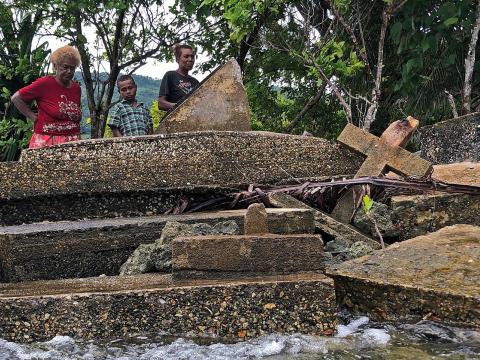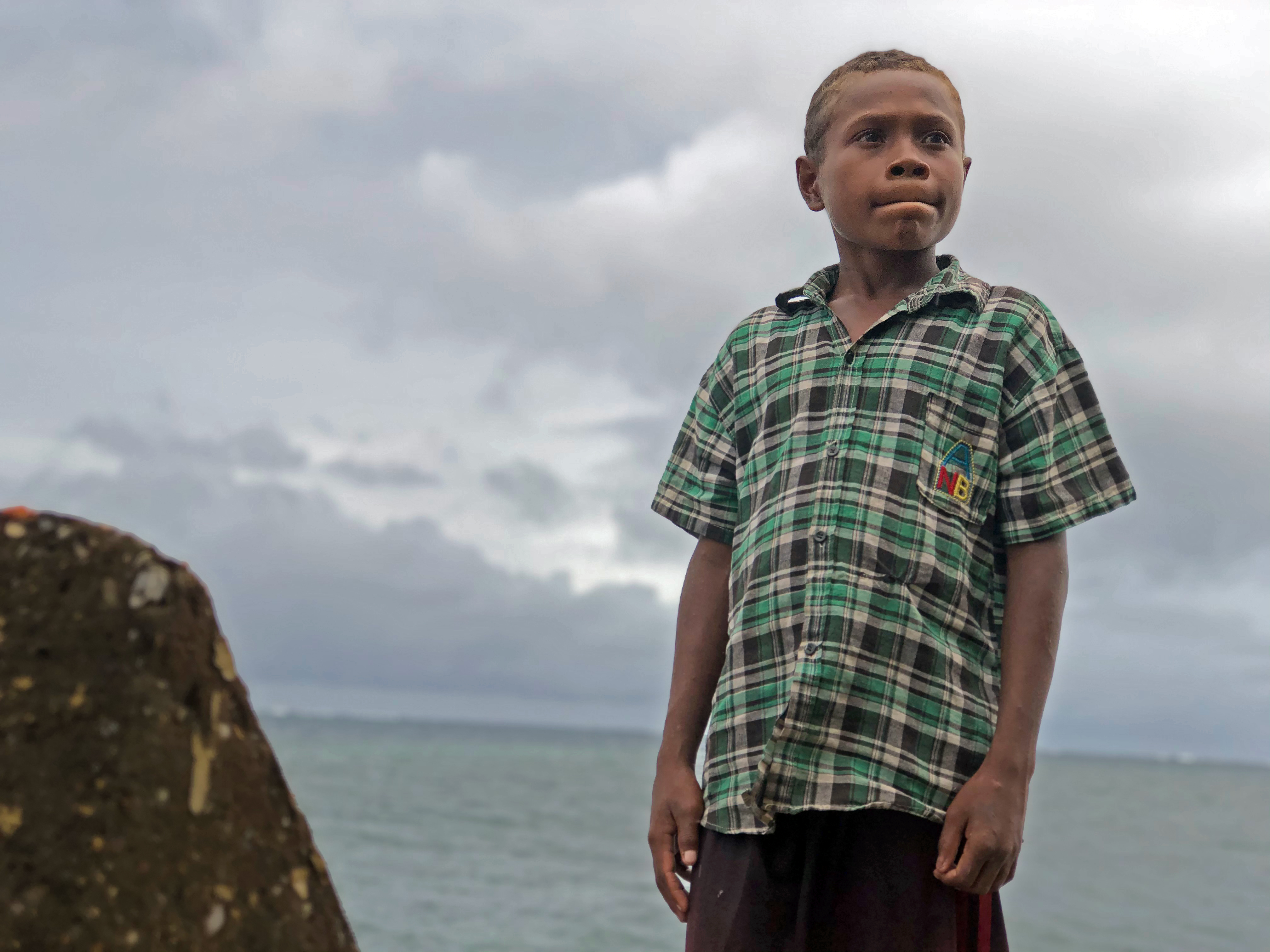
Climate mobility and climate finance are linked: by survival
As COP29 convenes, Dr Olivia Yates explains how appropriate climate finance would prevent families from being displaced.
On an island in Malaita, Solomon Islands, 13-year-old Timothy visits his ancestral home for the first time, alongside his grandmother and mother. His family, like many Pacific families, relies on the land and sea for survival, but climate change has disrupted their lives. When Timothy was born, rising seas and coastal erosion forced his family to abandon their home and relocate to the mainland. Rising seas and coastal erosion ate away at the shoreline, while saltwater intrusion tainted their food and water. Now, the island is less than half its original size, and encroaching waves are damaging Timothy’s ancestors’ graves.
Timothy’s story demonstrates the importance of climate finance and the United Nations climate conference, COP29. Across the Pacific, climate change is driving many families from their homes. While most would prefer to stay, few can afford the critical infrastructure needed to safeguard their homes, their lives and their livelihoods from extreme weather and sea level rise. This is where the decisions around climate finance at COP29 become so crucial.
Climate Finance and a New Global Goal
COP29 holds immense significance for the future of climate action. This year, discussions are revolving around climate finance — money for helping frontline communities like Timothy’s in the Solomon Islands tackle climate change and adjust to the new environment it brings.
At its core, climate finance is about fairness. Wealthier countries, which bear the most responsibility for the greenhouse gas emissions that have led to rising temperatures, are required to provide funds to support lower-income nations that are the most affected by climate change. These funds help reduce emissions (mitigate) and fund adaptation so that communities can better cope with changing weather patterns and environments..
A key topic at COP29 is the New Collective Quantified Goal (NCQG), an updated global framework for climate finance. It is set to replace the previous target which requires wealthier countries to provide US$100 billion annually to support poorer nations facing the climate crisis.
Climate Finance for Climate Mobility
While climate finance is dominating the formal agenda at COP29, climate mobility – the term used for people moving due to climate change – will probably remain a spectre in the room. And yet, climate mobility and climate finance are two sides of the same coin. Climate mobility not only refers to migration but also staying in place (‘immobility’). This is because – despite fears of mass climate migration – most Pacific communities, including Timothy's in Malaita, overwhelmingly want to stay in place. For Pacific Islanders, land is not just a resource; it is tied to identity, culture, language, and ancestry. Leaving ancestral lands behind, even for safety, can mean the loss of a way of life.
Climate finance serves to prevent forced migration and a potentially devastating loss of cultural heritage by providing communities with the infrastructure and resources they need to continue living on their land. Unfortunately, the system has meant that many Pacific communities struggle to access these funds, which are often locked up in complex bureaucratic processes. As a Tuvaluan politician once joked, the paperwork to access the world’s largest climate finance fund, the Green Climate Fund, “is higher than sea level rise in Tuvalu.”
Towards fairer finance
There is a long way to go before Pacific communities can easily access the climate funding that helps them to stay at home. However, COP29 is an opportunity for higher-income countries to stand with the Pacific and push for a stronger, fairer, more accessible climate finance goal.

Listening to Pacific Wisdom
While countries debate the details of climate finance, there is wisdom in listening to Pacific communities for whom migration, and the funds to prevent it, are not an abstract debate, but a matter of survival.
Former Prime Minister of Tuvalu, Enele Sopoaga, famously said: “If you save Tuvalu, you save the world.” Putting numbers aside, if we build a climate finance system that works for Tuvaluan communities, that ensures kids like Timothy can grow up playing on their atoll island homes, it will work for all communities. This is what we must aim for at COP29, so future families facing an uncertain future will not have to leave.
To learn more about World Vision's approach to environmental sustainability and climate action click here
Dr Olivia Yates is a Community Psychologist, Climate (Im)mobilities Researcher and Climate Justice Advocate working for World Vision in Australia. She recently completed a PhD in Psychology looking at the well-being implications of climate mobility from the Pacific to Aotearoa NZ, working alongside the Kiribati and Tuvalu communities in Tāmaki Makaurau Auckland.


